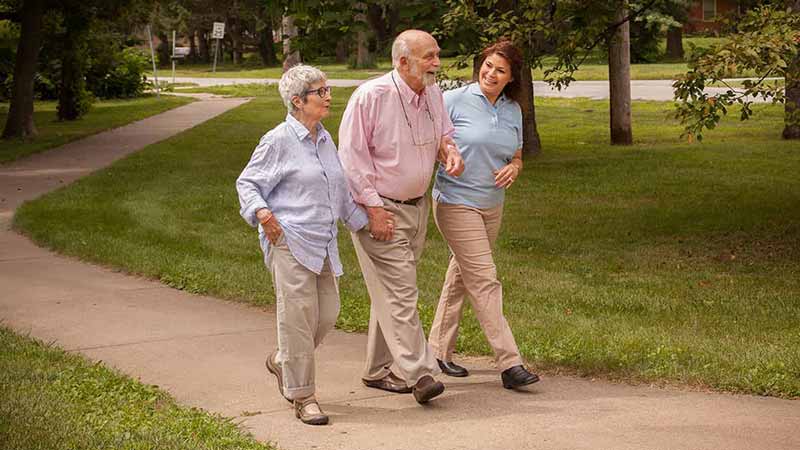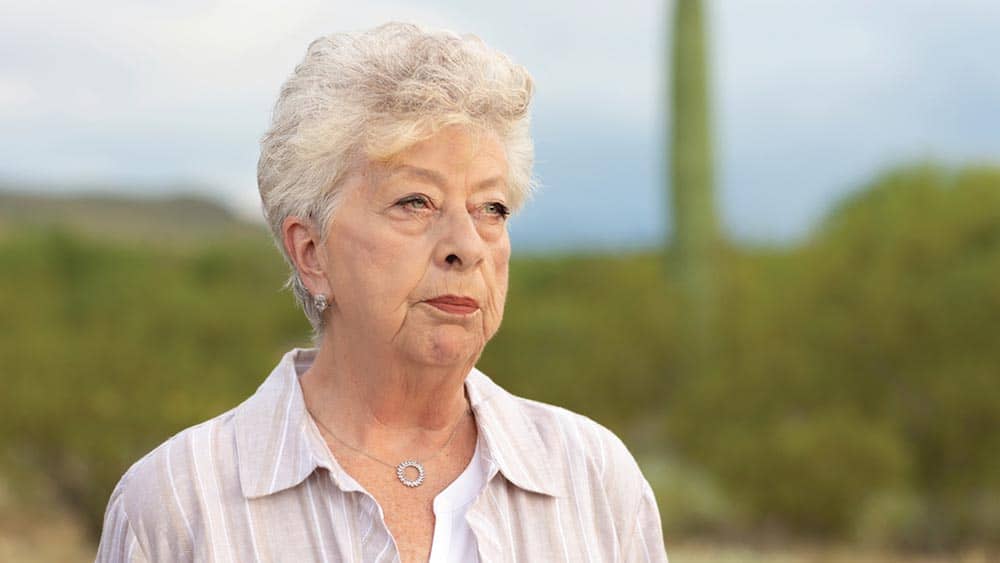

Helping a Loved One Manage Parkinson’s Disease
With the aging of our population, more people are living with Parkinson’s disease. Today an estimated 1 million people in the U.S. are living with this neurodegenerative disorder, and it is diagnosed in another 50,000 each year.
What is Parkinson’s disease?
Parkinson’s disease (PD) is a disorder of the brain that affects the transmission of messages to the muscles. When a person has PD, there is damage to the part of the brain that produces dopamine, an important chemical that allows the muscles to operate properly. The causes of PD are not entirely understood. Scientists continue to learn about genetic and environmental factors that come into play.
What are the symptoms of Parkinson’s disease?
- Tremor. The most common symptom is trembling or involuntary movement of hands, arms, legs or face; the person may appear to be “rolling” something between their fingers.
- Rigidity. The muscles are tense and contracted. It’s hard to move the arms and legs, and this effect may be painful. Handwriting may become cramped and harder to read.
- Slowness of body movement. The person might experience a slow, shuffling gait, sometimes alternating between slow steps and more rapid ones.
- Balance problems. Postural instability makes it hard to sit up or stand up straight, and raises the risk of falling.
- Difficulty chewing and swallowing. The muscles that help us eat may be affected, which can lead to drooling, choking and pneumonia.
- Speech difficulties. Speech may be slow and expressionless. Facial mobility also is affected, so the person may seem to be expressionless.
- Non-motor symptoms. Some symptoms of PD do not involve movement. A person may experience depression and other emotional changes, sleep disruptions, thinking or memory problems, and other personality changes.
The role of family and friends
Experts say a support system of family and friends raises the odds of the best management of PD. If you are part of that support system, you will likely be involved in your loved one’s journey with PD:
Support during the diagnosis process and establishing treatment. Confirming that your loved one has PD and determining the best treatment strategy will require a number of appointments with the doctor and specialists. Your support helps ensure that your loved one gets their questions answered, understands the doctor’s instructions, and keeps follow-up appointments.
Encouragement and support for treatment. The medical regimen for PD has a lot of components. Adding to that, your loved one might be dealing with other health conditions, as well. You’ll likely continue to help your loved one remember their appointments, as well as taking medications as directed and following other recommendations.
Day-to-day life. As the disease progresses, your loved one may need assistance with daily activities and staying active and connected in the community. You may be called upon to help with personal care and grooming, to make home safety adaptations, and to assist with the insurance company, other financial matters, and long-term care planning.
Transportation. Many people with PD can continue to drive for some time. But if physical and mental changes and/or the side effects of medications mean your loved one is unsafe behind the wheel, you may be called upon to provide rides or help your loved one access appropriate public transportation.
Emotional support. Dealing with PD can take a toll on a patient’s emotions, leading to depression and anxiety. PD can cause a change in a person’s thinking and emotions, and their ability to communicate. Your support can help your loved one cope; individual or family counseling can help.
Family caregivers face challenges
As they’re helping their loved one manage PD, family often lose sight of their own health and well-being. They might be juggling work duties and other family responsibilities with their loved one’s care. And often they are dealing with emotional pain of their own. As their loved one’s condition changes, spouses and children evolve into the caregiver role. PD also changes the way patients communicate, so family must learn new ways to connect.
Fortunately, our healthcare system is recognizing the important role of family caregivers. If you are a family caregiver, learn about support resources that can help, such as a caregiver support group (in person or online), and federal, state and local support services. Talk to other family members and friends about your loved one’s needs and how they can help. You can’t do it alone!
Home care is a great support resource
Many families have found that enlisting the help of trained, professional in-home caregivers is the perfect way to keep their loved one with PD on track with their medical routine, and safe and well at home. A caregiver can provide:
- Assistance with personal care, such as bathing, dressing and grooming.
- Grocery shopping and preparation of meals, according to the doctor’s instructions.
- Supervision and encouragement for exercise.
- Transportation to doctor appointments, the pharmacy, and anywhere the client wants to go.
- Reminders about appointments and medications.
- Companionship to help clients avoid social isolation and depression.
- Respite care for family caregivers, allowing them to recharge their emotional batteries and take care of personal tasks and their own health.
- Normalizing of family dynamics: When a trained professional assists with sensitive care tasks, this lowers caregiver stress and lets the person with PD and their family focus on things they enjoy together.
Parkinson’s Moving Day
Right at Home has been a Parkinson’s Foundation Moving Day National Partner since the event was established in 2011. To date, Right at Home has participated in 151 Moving Day events to support funding for research, resources, and quality care to be delivered to people affected by Parkinson’s. Moving Day features a family-friendly walk, caregivers’ relaxation tent, and Movement Pavilion with yoga, dance, tai chi, Pilates and other activities to help manage the symptoms of Parkinson’s.
The information in this blog is not intended to replace the advice of your healthcare provider. Talk to your doctor about the diagnosis and treatment of Parkinson’s disease.
Latest Resources for Seniors
Featured article








